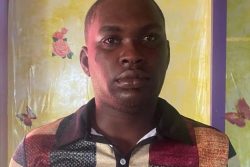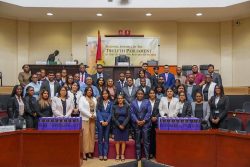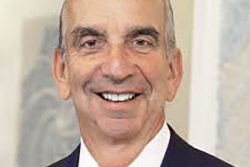NEW YORK, (Reuters) – Seven Northeastern U.S. states and three on the West Coast formed regional pacts yesterday aimed at coordinating a gradual reopening of their economies without a resurgence of coronavirus infections just as the outbreak appeared to be starting to wane.
New York, by far the hardest hit state, will work closely with nearby New Jersey, Connecticut, Delaware, Pennsylvania and Rhode Island to devise strategies for jointly easing stay-at-home orders imposed last month to curb coronavirus transmissions, New York Governor Andrew Cuomo said.
Massachusetts later announced it was joining the East Coast coalition.
“Nobody has been here before, nobody has all the answers,” Cuomo said during an open conference call with five counterparts. “Addressing public health and the economy: Which one is first? They’re both first.”
Separately, the governors of California, Oregon and Washington announced a similar agreement to devise a shared approach for lifting social-distancing measures, saying they “need to see a decline in the rate of spread of the virus before large-scale reopening” can take place.
The 10 state leaders, all Democrats except for Massachusetts Governor Charlie Baker, gave no timeline for ending social lockdowns that have collectively idled the vast majority of more than 100 million residents in their states.
But they stressed that decisions about when and how to reopen non-essential businesses, along with schools and universities, will put the health of residents first and rely on science rather than politics.
U.S. President Donald Trump, a Republican who before the pandemic had touted a vibrant U.S. economy as the centerpiece of his re-election bid, has pressed repeatedly in recent weeks for getting Americans back to work soon. Ahead of the governors’ announcement yesterday, he declared that any decision on restarting U.S. commerce was his to make.
Tensions between governors and Trump have bubbled up since the public health crisis worsened a month ago, and have re-emerged in the debate over economic imperatives versus public health priorities.
Legal experts say the president has limited power under the U.S. Constitution to order citizens back to their places of employment, or to require cities to reopen government buildings and transportation, or to order local businesses to reopen.
“It is the decision of the president, and for many good reasons,” Trump wrote on Twitter on Monday, adding that his administration was working closely with the governors.
“A decision by me, in conjunction with the governors and input from others, will be made shortly!” Trump’s tweet said.
Political leaders said a reopening of the economy may hinge on more widespread testing and cautioned that lifting of stay-at-home orders prematurely could reignite the outbreak. The Trump administration has signaled May 1 as a potential date for easing the restrictions.
The U.S. death toll from COVID-19, the highly infectious lung disease caused by the virus, topped 23,000 on Monday, out of more than 575,000 known U.S. infections, according to a Reuters tally. The United States, with the world’s third-largest population by country, has recorded more fatalities from COVID-19 than any other nation.
At least 1,500 new U.S. fatalities were reported on Monday, far below last week’s running tally of roughly 2,000 deaths every 24 hours. New York state accounts for the largest number of cumulative deaths, over 10,000, the bulk of them concentrated in and around New York City.
Cuomo said on Monday that “the worst is over” for his state but warned that gains achieved through social distancing could be undone if “we do something stupid” and relax those restrictions too quickly.
Wyoming reported its first death from the coronavirus on Monday, the final U.S. state to report a fatality.
Official statistics, which exclude deaths outside of hospitals, have understated the actual number of people who have succumbed to COVID-19, health experts said. (Graphic: https://tmsnrt.rs/2w7hX9T)
New York City Health Commissioner Dr. Oxiris Barbot acknowledged a “tightening” of the supply chain for swabs needed in coronavirus testing, and said it was part of a “national and international challenge” to ramp up testing.
Chris Sununu, the Republican governor of New Hampshire, said testing for the coronavirus had improved “but we don’t have enough. Nobody has enough.”
“There’s just a limited supply for a massive amount of demand,” Sununu told CNN.
To ease the impact of the shutdown on the U.S. economy, the two top Democrats in the U.S. Congress urged Republicans yesterday to authorize more funding for national testing. An effort to rush fresh assistance to U.S. small businesses stalled in Congress as the health emergency failed to overcome partisan differences between Republicans and Democrats.










